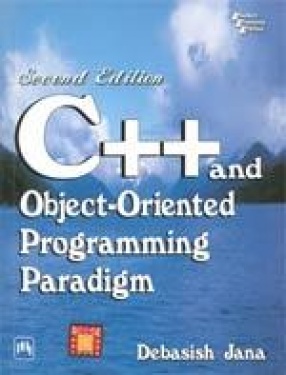C++ and Object-Oriented Programming Paradigm
Synopsis
This book which treats C++, one of the most widely used programming languages of today, and object-oriented programming (OOP) paradigm, has been well received by the readers, and this enthusiastic response has prompted the author to bring out this second edition. This revised and updated new edition takes into account the recent trends in C++ and OOP. The book continues to give an overview of programming as well as an introduction to basic object-oriented (OO) concepts and elements of C. It also provides the standard and advanced features of C++ for further study. The text establishes the philosophy of OOP by highlighting the core features of C++ and demonstrating the semantic differences between C as a procedural paradigm and the object-oriented paradigm of C++. This new edition updates the elaborates on the following topics: Reference data types; Inline functions; Two's complement representation of signed numbers; Parameter passing-passing pointers by value as well as by reference; Polymorphism; Searching and sorting algorithms; Implementation of linked list; Phases of software development; UML. Primarily intended as a text for undergraduate students of engineering (B.Tech.), undergraduate and postgraduate students of computer applications (BCA/MCA), and postgraduate students of management, the book should also prove to be a stimulating study for all those who have a keen interest in the subject. Key Features: Practical application of theories through several examples and program source codes; Intricacies of language features in the light of OO design and modeling paradigm and UML; Exhaustive glossary of programming terms.
Read more
20.70
18.63
$
23.00 $
Free delivery Wolrdwidе in 10-18 days
Ships in 1-2 days from New Delhi
Membership for 1 Year $35.00
Get it now and save 10%
Get it now and save 10%
BECOME A MEMBER



This book starts from a groundup with lucid language and moves the reader towards the most advanced concepts on the language semantics as well as object oriented modeling through UML.
Bibliographic information